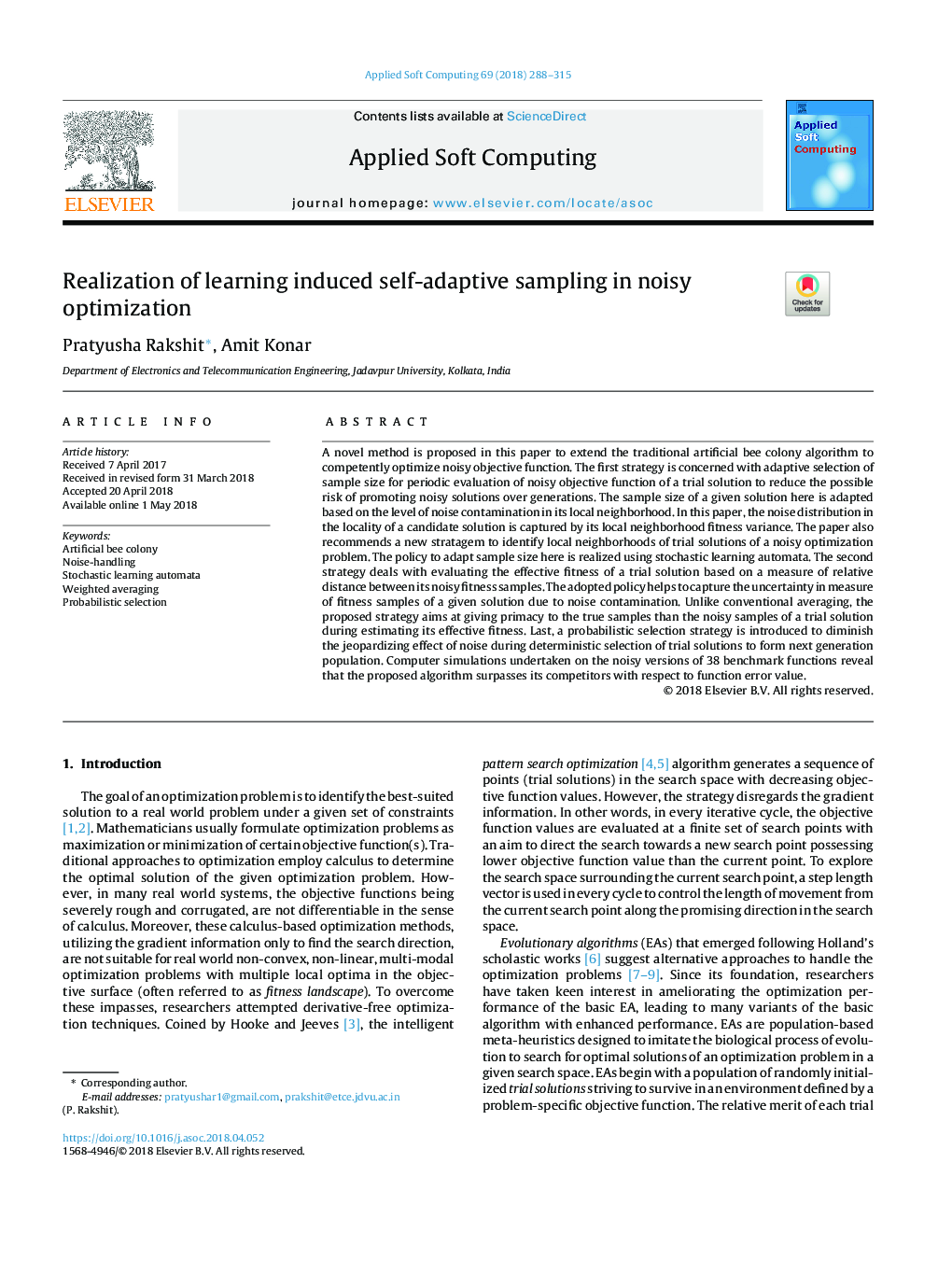| Article ID | Journal | Published Year | Pages | File Type |
|---|---|---|---|---|
| 6903485 | Applied Soft Computing | 2018 | 28 Pages |
Abstract
A novel method is proposed in this paper to extend the traditional artificial bee colony algorithm to competently optimize noisy objective function. The first strategy is concerned with adaptive selection of sample size for periodic evaluation of noisy objective function of a trial solution to reduce the possible risk of promoting noisy solutions over generations. The sample size of a given solution here is adapted based on the level of noise contamination in its local neighborhood. In this paper, the noise distribution in the locality of a candidate solution is captured by its local neighborhood fitness variance. The paper also recommends a new stratagem to identify local neighborhoods of trial solutions of a noisy optimization problem. The policy to adapt sample size here is realized using stochastic learning automata. The second strategy deals with evaluating the effective fitness of a trial solution based on a measure of relative distance between its noisy fitness samples. The adopted policy helps to capture the uncertainty in measure of fitness samples of a given solution due to noise contamination. Unlike conventional averaging, the proposed strategy aims at giving primacy to the true samples than the noisy samples of a trial solution during estimating its effective fitness. Last, a probabilistic selection strategy is introduced to diminish the jeopardizing effect of noise during deterministic selection of trial solutions to form next generation population. Computer simulations undertaken on the noisy versions of 38 benchmark functions reveal that the proposed algorithm surpasses its competitors with respect to function error value.
Related Topics
Physical Sciences and Engineering
Computer Science
Computer Science Applications
Authors
Pratyusha Rakshit, Amit Konar,
